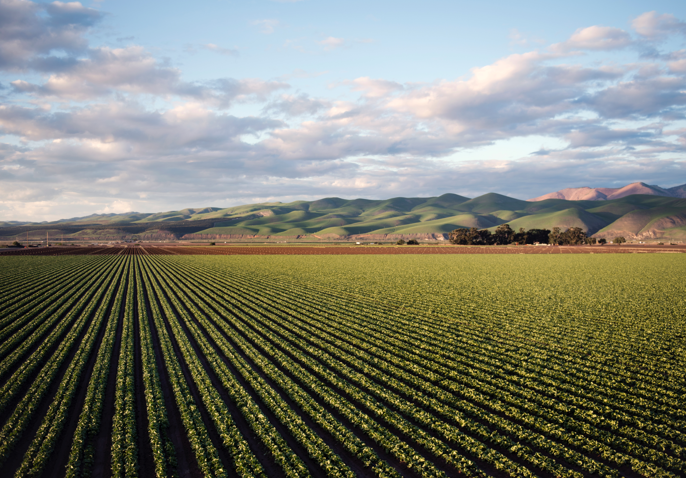As climate disasters become more frequent and more devastating around the world, we must now, for the sake of our planet, assess the fundamentals of the systems we have constructed and ask how we can do better. With animal agriculture causing enormous harm to our environment it’s time to consider more sustainable ways of eating. It’s time to consider: What would a world with a plant-based food system look like?
In fact, an entirely plant-based planet is not as far away as many may think. As more and more people become aware of the environmental footprint of animal products and the suffering involved in their production, plant-based diets are rapidly becoming more popular all around the globe. Earlier this year in January, a record half a million Brits signed up to Veganuary, a campaign which inspires people to eat vegan for January and throughout the rest of the year. It is projected that vegans and vegetarians will make up a quarter of the British population by 2025.
That’s not all. In Latin America and the Caribbean 8% of the population identify as vegetarian or vegan and in Mexico this figure is at a staggering 20%. In the United States, the number of Americans following plant-based diets has risen by nearly 9.6 million over the last 15 years, a 300% increase. It’s safe to say support for a plant-based food system is widespread and growing rapidly. We are well and truly on the way to a plant-based world, but how would a plant-based food system be beneficial to our planet?
It’s no secret that animal agriculture is one of the very largest polluters on Earth. An Oxford University report concluded that if the world were to follow plant based diets, food-related emissions would drop by 70% by 2050! Emissions of carbon dioxide, methane and nitrous oxide would all plummet, giving us a much better chance at fighting off climate catastrophe and ensuring our survival on Earth.
This drop in pollution would help us avoid extreme weather disasters, as the report highlights that a plant based food system could avoid climate-related damages of $1.5 trillion US dollars. In addition to a considerable drop in greenhouse gas emissions, a plant-based food system would help us to limit air pollution levels, water pollution and would be a chance for our forests, species and biodiversity to thrive again. With animal agriculture responsible for up to 91% of Amazon destruction, its replacement with a plant-based food system would see deforestation in the Amazon and around the world fall dramatically.
Via Pexel Felix Mittermeier
A plant-based food system would see an end to the eating of animals and their products for food. We would no longer raise and kill the billions of land and aquatic animals we currently consume. Slaughterhouses would cease to exist. Billions of animals would be spared a life in factory farms and premature deaths. A plant-based food system would undoubtedly make the world a fairer, and more just place for animals.
Extending this compassion to marine life and halting seafood consumption and fishing would give marine populations the time they desperately need to recover. Our oceans absorb far more C02 than the Amazon rainforest, with about 93% stored in their waters. Not only do oceans absorb almost all of the Earth’s excess heat, but they provide up to 85% of the world’s oxygen. Intense industrial fishing and pollution are jeopardising this natural balance so much so that we could potentially see the extinction of all sea life. A plant-based food system would be an important step to helping our oceans to heal.
Not only would life under a plant based food system be revolutionary for the health of our planet, but for our own health too! Plant-based diets are healthy and sustainable for people at all stages of life, as they provide all necessary nutrition and do not contain many of the disease-causing properties found in animal products. Under a plant-based food system, people all around the world would undoubtedly lead longer and happier lives, and would potentially be free from many of the major diseases and conditions millions suffer from today.
In addition, a plant based food system would help ensure that everyone on Earth has access to nutritious, healthy food. On a plant-based planet, world hunger would practically cease to exist. Rearing animals for food consumption requires 83% of our total farmland, but produces only 18% of our caloric intake. Under this incredibly inefficient system we have billions of farm animals who are well or even over-fed, whilst the majority of the world’s population goes hungry.
Via Pexel Johannes Plenio
Converting the land we use for animal farming and animal crops to growing plant foods for the population would virtually put an end to world hunger. With almost half the world’s land freed up, we would have the chance to use it for other purposes and would have more than enough space to rewild large parts of the planet, allowing once industrialised terrain to become teaming with life.
A world with a plant-based food system would undoubtedly be a better place for people, animals and the planet itself. We need to start the transition to a plant-based food system and we need to do it now! We’ve seen how much better a world it could be, why not join us in fighting for it? Find a role which suits you here and help us get one step closer to a plant-based world!


One thought on “How a just and sustainable plant-based food system could change the world”
Comments are closed.